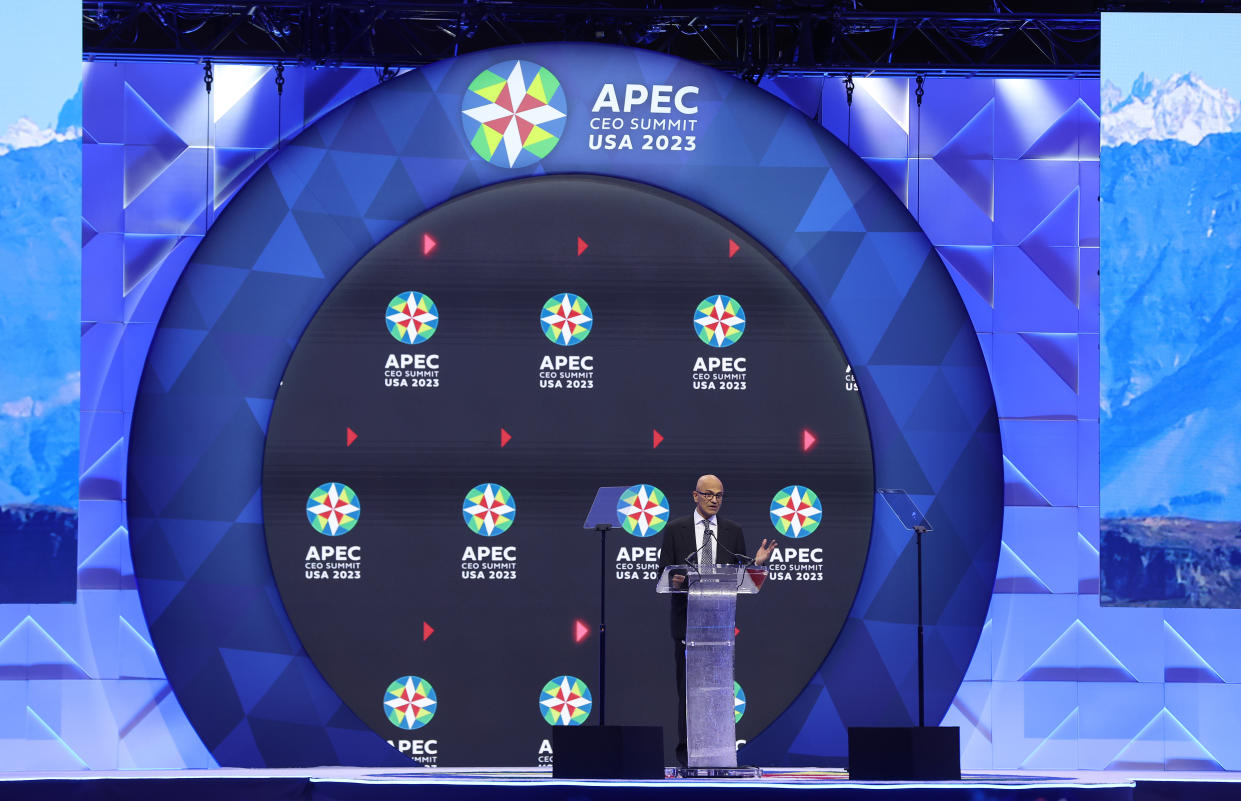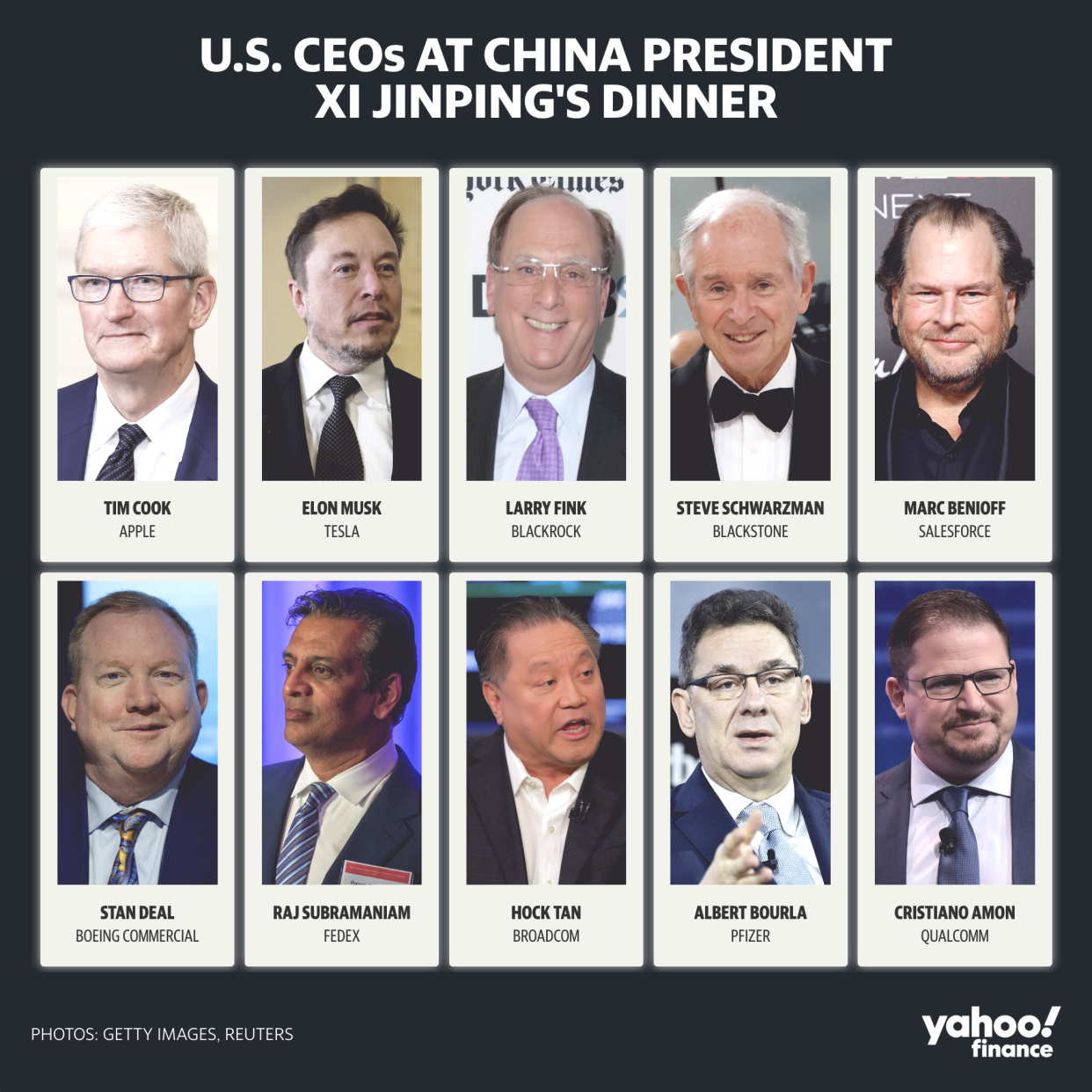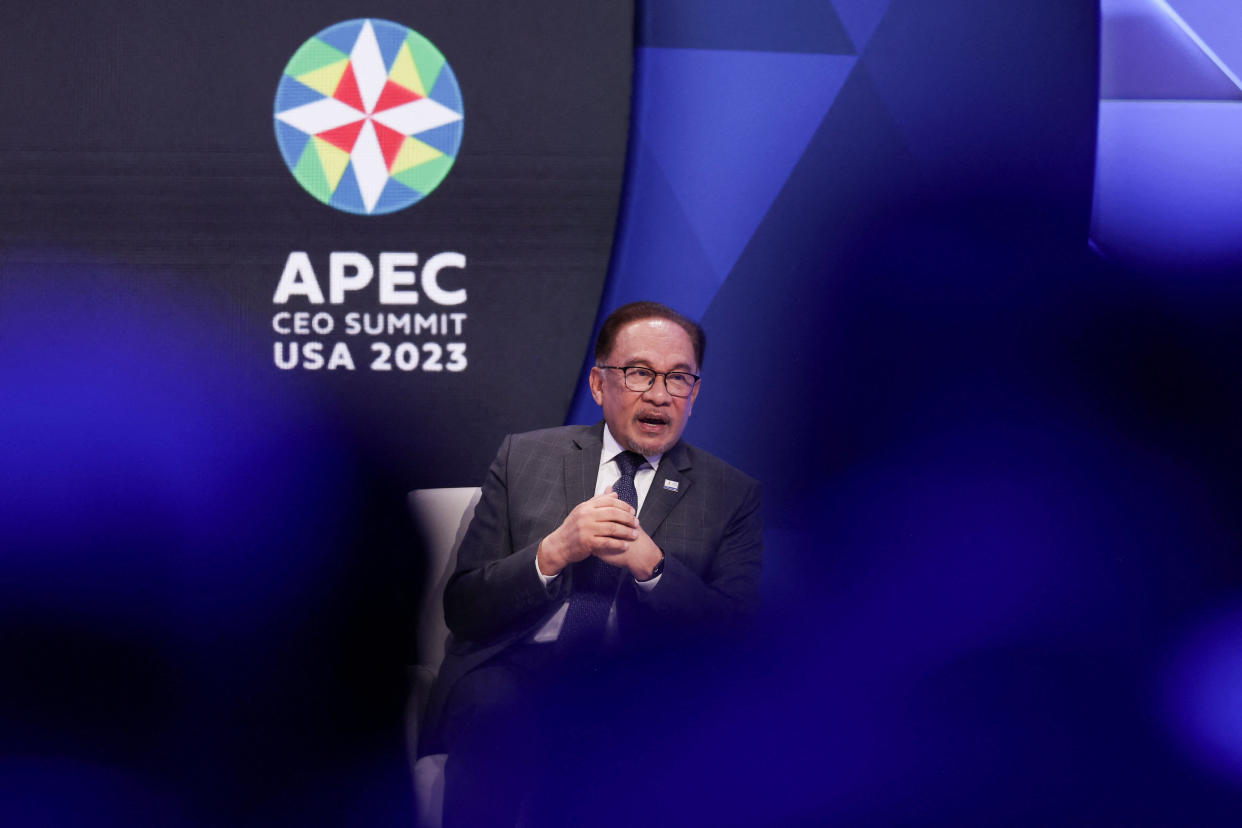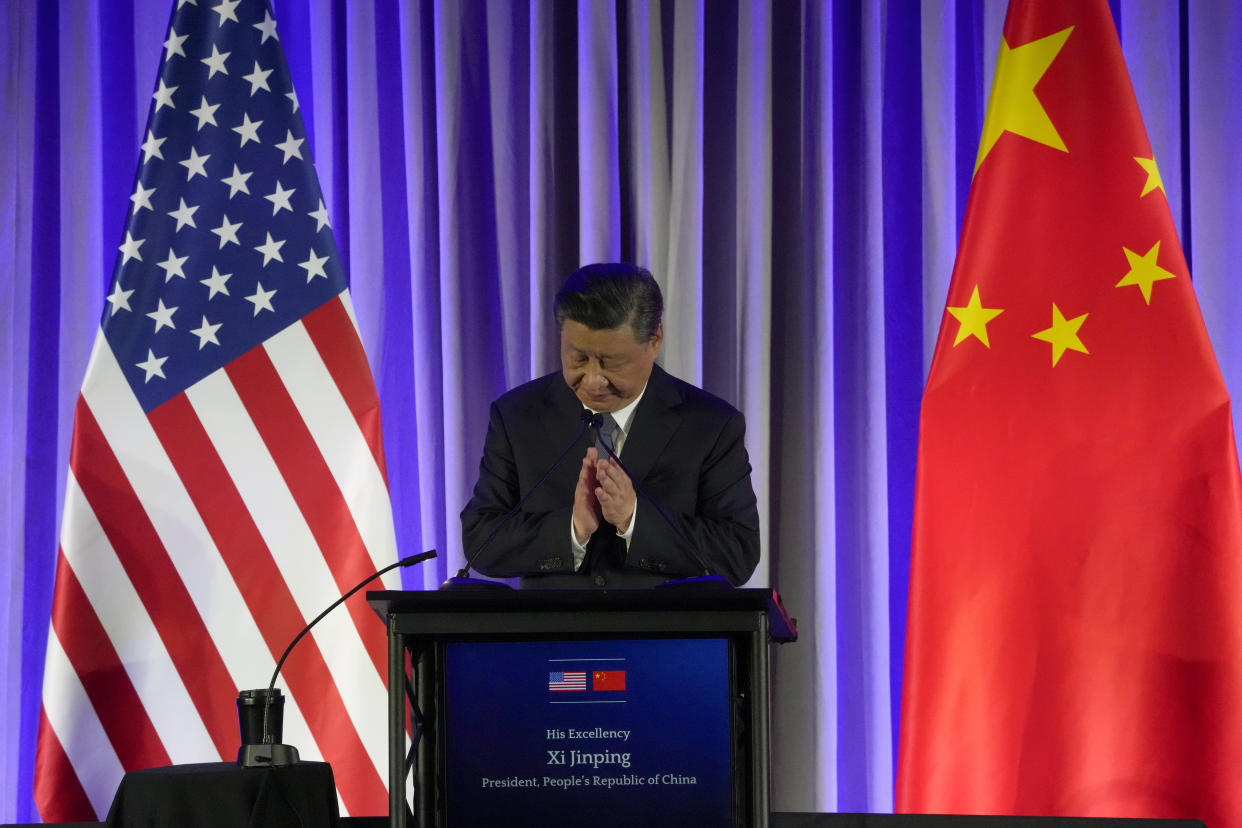China's neighbors are wooing American CEOs. The CEOs are listening.
China’s neighbors are trying to capitalize on current tensions with the US by wooing American CEOs who are more open to making their goods in other parts of Southeast Asia.
The lobbying from China's Asian rivals was on full display this past week at the Asia Pacific Economic Cooperation (APEC) Summit in San Francisco, even as Chinese President Xi Jinping tried to make his own case for why the US business world should keep its money with him.
On a day when Xi and President Joe Biden huddled at a resort roughly 35 miles away, American CEOs and leaders from other Southeast Asian nations rubbed elbows inside a San Francisco convention center.
The global chair of PricewaterhouseCoopers International appeared alongside the prime minister of Malaysia. The CEO of Uber (UBER) was with the president of the Philippines. The CEO of Microsoft (MSFT) appeared in a session with three Southeast Asian leaders.
The heads of companies like ExxonMobil (XOM), Alphabet (GOOG), GM (GM) and Visa (V) were also on hand for conversations.

"This is the right time to invest," said Indonesian President Joko Widodo from the stage as he touted his nation’s efforts in areas like electric vehicles and clean energy. He called it "the right and promising choice to make," according to the official translation.
Philippines President Ferdinand R. Marcos Jr. also used his remarks at APEC this past week to push for tighter economic ties, saying "this opportunity to collaborate once more is light in the economic horizon in our efforts to preempt a prolonged downturn and its very negative consequences."
American companies have long been looking to diversify their supply chains beyond China thanks to a US-China trade war. The COVID-19 pandemic accelerated those discussions, with companies unable to get goods out of the world's second-largest economy as manufacturing hubs and ports within China shut down.
Now even more firms are considering such moves because of geopolitical uncertainty and opaqueness around the Chinese economy.

The diversification strategy received strong encouragement from the Biden administration this past week, with Treasury Secretary Janet Yellen encouraging companies to look at "friend-shoring" or focusing on countries that are trusted trade partners.
"There's no question that these other Southeast Asian countries are going to be making a strong pitch for why they need to be added to the supply chain basket," said Shehzad Qazi, managing director at China Beige Book.
"I think the question that the CEOs and their staff will be wondering about continuously is, do these other countries have the capacity to become big players."
The nations that stand to benefit
Experts say tech manufacturing and the transition to clean energy offer the biggest opportunities for businesses that want to seek out opportunities in Asian countries outside of China.
It’s already happening in India. That country has emerged as a key alternative to China for companies like Tesla (TSLA) and Apple (AAPL), which has long relied on Chinese companies for its iPhone components. India is not a member of APEC.
Apple is also reportedly pushing for more investment in Vietnam, as are major chipmakers including Intel (INTC) and GlobalFoundries (GFS) that recently visited the country to reportedly discuss building out the country's semiconductor assembly and design capabilities.

Vietnam is trying to gain benefits from both the US and China, said Nicholas Lardy, an expert on the Chinese economy at the Peterson Institute for International Economics, setting up the nation as a middleman.
Chinese firms "are producing things [in Vietnam] and selling them into the US and avoiding the tariffs," he notes. "So this is a workaround."
But both Lardy and Rhodium Group Director Reva Goujon point out that these complicated arrangements could end up backfiring on the West.
"It's kind of ironic because the US is trying to pull these countries into our orbit and reduce their dependence on China, but their dependence on China is actually growing," Lardy notes.
Goujon adds that "dependencies are still very sticky so you can have investment move to Vietnam or Thailand or Indonesia but the inputs for those manufactured products are still likely coming from China."
A China that isn't going away
The Chinese president put on his own charm offensive this past week.
At a dinner Wednesday night that included Apple CEO Tim Cook, Boeing Commercial Airplanes CEO Stan Deal, and FedEx CEO Raj Subramaniam, he tried to reassure the CEOs in attendance by suggesting his political controls would be less restrictive going forward.
He also engaged in some panda diplomacy, suggesting new bears could be coming to the National Zoo in Washington, D.C., after the former residents were recalled to the PRC earlier this year.

And in a second written statement, Xi alluded directly to the burgeoning rivalry with his neighbors, writing "China has become a synonym of the best investment destination, and that the ‘next China' is still China."
"Decoupling and supply-chain disruption are not in anyone's interests," he added.
China could also benefit in the months and years ahead from troubled efforts to get a trade framework across the Asian region in place.
Commerce Secretary Gina Raimondo acknowledged Wednesday at a dinner attended by CEOs as well as Xi that many American businesses remained keenly interested in China.
"I know that because half of you have come to see me to tell me that."
Akiko Fujita is an anchor and reporter for Yahoo Finance. Follow her on Twitter @AkikoFujita. Ben Werschkul is Washington correspondent for Yahoo Finance.
Click here for politics news related to business and money
Read the latest financial and business news from Yahoo Finance
